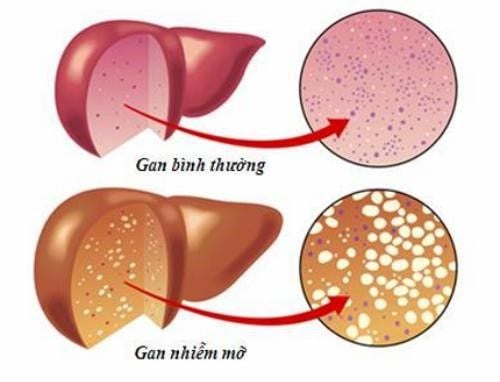The article was written by Master, Medical Doctor Mai Vien Phuong - Department of Examination & Internal Medicine - Vinmec Central Park International General Hospital
Constipation is one of the most common digestive problems in the United States, affecting about 2.5 million people. It is defined as having a difficult, dry bowel movement or having a bowel movement less than three times a week.
1. What causes constipation?
The main function of the large intestine is to absorb water from leftover food as it passes through your digestive system. It then creates stool (waste). Finally, the muscles of the colon eventually push the waste out through the rectum for elimination. If stool stays in the colon for too long, it can become hard and difficult to pass.
Often poor diet causes constipation. Fiber and adequate water intake are needed to help soften stool. Plants are foods rich in fiber. There is soluble and insoluble fiber. Soluble fiber dissolves in water and creates a soft, gel-like material as it passes through the digestive system.
Insoluble fiber retains most of its structure as it passes through the digestive system. Both forms of fiber comprise stool, increasing its weight and size, and softening it. This makes it easier to pass through the rectum.
Stress, changes in bowel habits, and other conditions that slow the contraction of intestinal muscles or delay bowel movements can also lead to constipation.
2. What are the signs of constipation?
The definition of a normal bowel movement varies among individuals. Some people have bowel movements three times a day, while others have them three times a week.
However, you may be constipated if you experience the following symptoms:
- Fewer than three bowel movements a week
- Hard and dry stools
- Straining or pain during bowel movements
- Feeling full, even after a bowel movement
- Feeling of a blockage in the rectum

3. The role of herbs in constipation
Constipation makes life uncomfortable. When you feel heavy and bloated, you want to get relief quickly. You can use natural remedies to relieve constipation.
Constipation is defined as having fewer than three bowel movements a week. It can be chronic or occasional. Some symptoms include:
- Hard stools
- Straining to have a bowel movement
- Feeling as if you are “blocked” or unable to have a bowel movement
- Needing help emptying your rectum
- Abdominal pain
- Nausea and bloating
Using herbal remedies
It is fairly easy to find herbal remedies for constipation. In fact, many over-the-counter laxatives contain herbal ingredients. Most of them contain anthraquinones, or substances that act as bowel stimulants. These laxatives work by drawing fluid into the colon and increasing bowel movements. Bowel movements are contractions of the intestine muscles that help move material through the colon to the rectum. Consuming adequate fiber and fluids is essential when you are constipated.
The five following herbal remedies should be considered for constipation.
3.1. Cascara sagrada (Rhamnus purshiana)
This is a popular herbal laxative extracted from the bark of a shrub. The extract stimulates the colon to promote bowel movements. Short-term use is generally well tolerated, but may cause abdominal pain or electrolyte imbalances. Long-term use may cause mild liver damage to acute liver failure.
Learn more about cascara sagrada.
3.2. Psyllium
A plant of the Plantain family, psyllium is a natural fiber laxative that helps create bulky stools. Psyllium is commonly used to treat chronic constipation and can be combined with other laxatives, either natural or synthetic. It can cause some side effects, such as:
- Allergy
- Nausea
- Abdominal pain
- Vomiting

3.3. Rhubarb
Although it may be best known as an ingredient in cakes, this vegetable is also used to treat constipation. Rhubarb has a laxative effect, but a study published in the Journal of Ethnopharmacology found that it also has antidiarrheal effects because of its tannin content. Therefore, rhubarb should only be used short-term for constipation.
3.4. Senna
Senna is used to treat constipation and to clean the bowels before certain medical procedures. Its fruit is said to be gentler than leaves. However, it should only be used short-term in recommended doses. Senna tablets are effective against constipation and can be purchased at most drug stores. High doses and long-term use have been reported to cause liver damage.
3.5. Slippery Elm
This herb has a history of use for constipation. It stimulates nerves in the gastrointestinal (GI) tract to produce mucus then helps to relieve constipation. Research about its limitations has been done to determine the long-term effects. Slippery elm contains a sticky, coats the digestive tract. Therefore, it can reduce the absorption of certain medications if taken simultaneously.
Some people believe that all herbs are safe because they are natural. While in some cases, herbs may be a milder alternative, they possess powerful effects and can lead to potential drug interactions, as well as negative side effects.
Talk to your doctor or pharmacist before using herbal remedies to treat constipation, especially if you are pregnant or breastfeeding. Children should be treated for recurrent constipation with the advice of a healthcare provider.

Vinmec International General Hospital is one of the leading hospitals in the country in examining, diagnosing and treating digestive diseases, specifically constipation. With modern equipment, sterile space, minimizing the impact as well as the risk of spreading the disease. Along with that is the dedication of experienced doctors with pediatric patients, making examination no longer a concern for parents.
To be examined by experienced specialists at Vinmec. Please make an appointment on the website to be served.
References
- Cascara (cascara sagrada). (2017).livertox.nih.gov/Cascara.htm
- Kumar D, et al. (2016). Natural polymers and herbal medicine based therapy for colonic diseases.florajournal.com/archives/2016/vol4issue3/PartA/4-6-5-393.pdf
- Mayo Clinic Staff. (2016). Constipation: Symptoms and causes.mayoclinic.org/diseases-conditions/constipation/symptoms-causes/syc-20354253
- Senna (cassia species). (2013).livertox.nih.gov/Senna.htm
- Qin Y, et al. (2011). The diarrhoeogenic and antidiarrhoeal bidirectional effects of rhubarb and its potential mechanism. DOI:doi.org/10.1016/j.jep.2010.11.041
To arrange an appointment, please call HOTLINE or make your reservation directly HERE. You may also download the MyVinmec app to schedule appointments faster and manage your reservations more conveniently.








